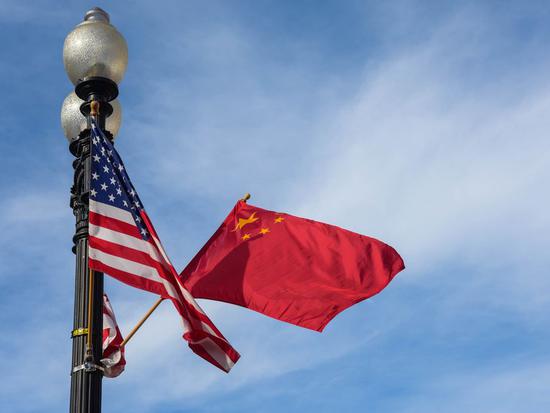Chinese, U.S. scientists tie up for cancer treatments
Despite geopolitical tensions, Chinese and U.S. medical professionals have made persistent efforts to strengthen collaboration between the two nations in biomedical and medical sciences, a forum has heard.
Themed "Cancer Immunotherapy: Breakthroughs and Challenges", a recent forum organized by the International Association of Biomedical Sciences brought together Chinese and U.S. medical professionals to discuss advancing innovative therapies for challenging diseases.
Erxi Wu, a researcher at the Baylor College of Medicine, emphasized the resilience of nongovernmental exchanges in the Sino-U.S. medical community.
"Although the China Initiative has hindered cooperation between the Chinese and U.S. medical communities, nongovernmental exchanges continue," Wu told China Daily.
The China Initiative, launched by the U.S. government in 2018 to "combat economic espionage", was terminated in February 2022, but its chilling effects still linger. In this challenging environment, the Baylor College of Medicine has maintained partnerships with Chinese institutions such as Xi'an Jiaotong University, Shanghai University of Traditional Chinese Medicine and Yantai University.
"China has more students and more resources, and compared with the technology in the U.S., only by working together can we achieve strong research results and benefit the world," Wu said.
Common challenge
"Cancer is a common challenge facing mankind," Wu said. "The Chinese and American medical communities should continue to cooperate."
Cancer remains a leading cause of death worldwide, claiming nearly 10 million lives annually, with lung, colorectal, liver and breast cancers among the most prevalent. According to the World Health Organization, one in six deaths globally is due to cancer, and cases are projected to rise significantly, from 19.3 million new cases in 2020 to an estimated 28.4 million by 2040.
Ethan Shevach, a researcher from the National Institutes of Health, said his team has spent two decades working on an experimental method to selectively target tumors, but success remains limited.
"We really hope the two sides can develop essential cooperation to battle cancer," Shevach said, highlighting the importance of shared expertise to overcome such hurdles.
Fan Chaohong, an oncology medical officer at the U.S. Food and Drug Administration, pointed to the potential of China's large population and workforce for biotech drug development. She also noted the critical role of collaboration in navigating regulatory challenges, particularly in gene and cellular therapies.
"The main challenge is the historical lack of regulation and the need for more communication and trust between the U.S. and China," Fan said.
"With cancer cases on the rise globally, international partnerships are becoming increasingly essential to address medical needs," said Li Yongtian, president of the International Association of Biomedical Sciences.

